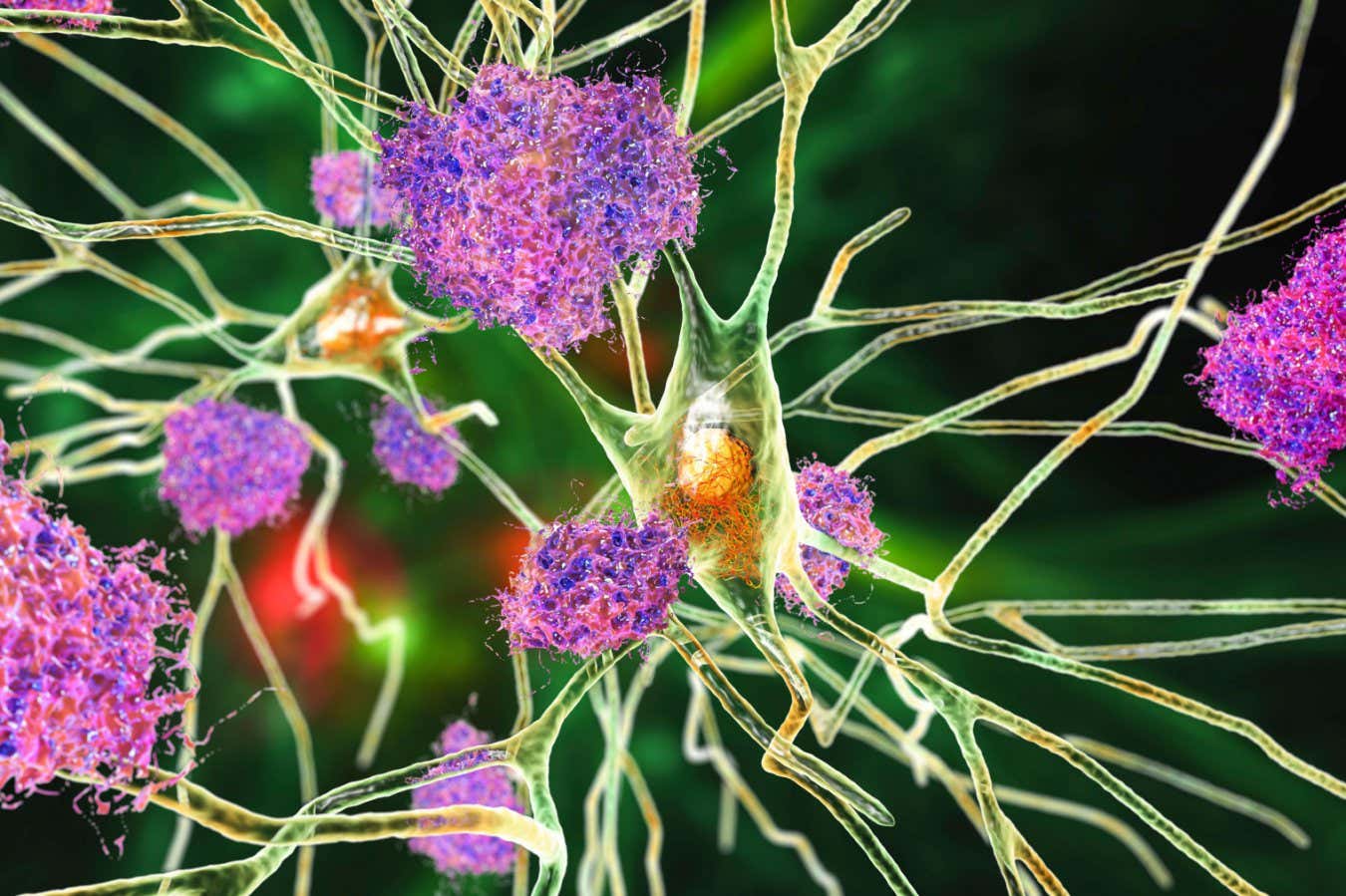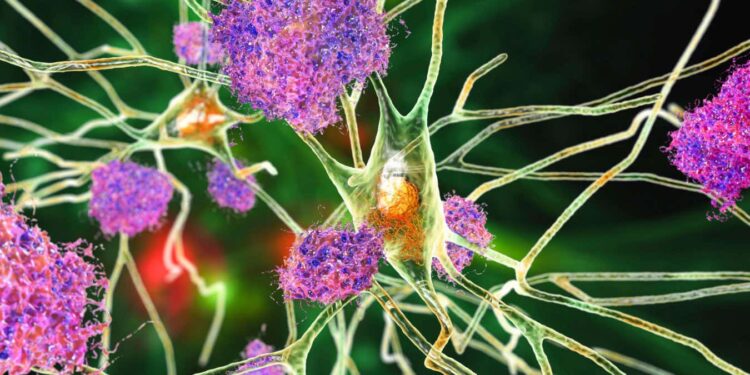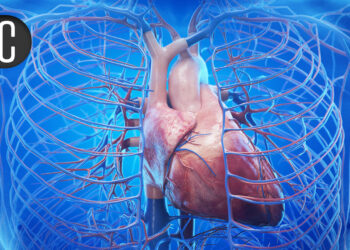
An illustration of nerve cells affected by Alzheimer’s disease
Science Photo Library / Alamy Stock Photo
People with Alzheimer’s disease have lower levels of lithium in their brains, and giving lithium to mice with symptoms of the condition reverses cognitive decline. Together, the findings suggest that lithium deficiency could be a driver of Alzheimer’s disease and that low-dose lithium medications could help treat it.
Numerous earlier studies have uncovered a link between lithium and Alzheimer’s disease. A 2022 study found that people prescribed lithium have almost half the risk of developing Alzheimer’s compared with those who haven’t been, and a paper published last year showed an association between lithium in drinking water and decreased dementia risk.
The trouble with these studies is that other hidden factors might explain the associations, says Bruce Yankner at Harvard University. For example, it could be that instead of lithium, another metal in drinking water, such as magnesium, is responsible for lowering dementia risk, he says.
Yankner and his colleagues analysed levels of 27 metals in the brains of 285 people after they died, 94 of whom were diagnosed with Alzheimer’s disease and 58 of whom had mild cognitive impairment, a precursor of the condition. The other participants showed no signs of cognitive decline at the time of their death.
Lithium levels in the prefrontal cortex – a brain region crucial for memory and decision-making – were about 36 per cent lower, on average, in people with Alzheimer’s disease than in those without any cognitive decline. For those with mild cognitive impairment, lithium levels were about 23 per cent lower. “We suspect that’s due to a number of environmental factors: dietary intake, genetics and so forth,” says Yankner.
Yet there seemed to be another reason, too. In those with Alzheimer’s disease, clumps of proteins called amyloid plaques contained nearly three times the amount of lithium as plaque-free regions of their brain. “Lithium becomes sequestered in these plaques,” says Yankner. “We have two things going on. There is impaired uptake of lithium [in the brain] very early on and then, as the disease progresses, the lithium that is in the brain is further diminished by being bound to amyloid.”
To understand how this influences cognition, the team genetically engineered 22 mice to develop Alzheimer’s-like symptoms and reduced their lithium intake by 92 per cent. After about eight months, the animals performed significantly worse on multiple memory tests compared with 16 mice on a standard diet. It took lithium-deficient mice around 10 seconds longer to find a hidden platform in a water maze, for example, even after six days of training. Their brains also contained nearly two and a half times as many amyloid plaques.
Genetic analysis of brain cells from the lithium-deficient mice showed increased activity in genes related to neurodegeneration and Alzheimer’s. They also had more brain inflammation and their immune cells were less able to clear away amyloid plaques, changes also seen in people with Alzheimer’s disease.
The team then screened different lithium compounds for their ability to bind to amyloid and found that lithium orotate – a naturally occurring compound in the body formed by combining lithium with orotic acid – appeared to be the least likely to get trapped within plaques. Nine months of treatment with this compound significantly reduced plaques in mice with Alzheimer’s-like symptoms, and they also performed as well on memory tests as normal mice.
These results suggest lithium orotate could be a promising treatment for Alzheimer’s. High doses of different lithium compounds are already used to treat some psychiatric conditions, such as bipolar disorder. “One major limitation of lithium treatment in ageing individuals is that, given the high doses that are used, people often run into kidney and thyroid toxicity,” says Yankner. But these doses are in concentrations about 1000-fold higher than those used to treat the mice in this study, he says. That may be why they found no indication of kidney or thyroid malfunction in the animals.
Still, clinical trials are needed to understand how low-dose lithium orotate may affect people, says Rudolph Tanzi at Massachusetts General Hospital. “The challenge is, how do you determine whether somebody needs lithium?” he says. “Because you wouldn’t want to overload the body with lithium. That could lead to severe side effects.”
Topics:
Source link : https://www.newscientist.com/article/2491493-low-dose-of-lithium-reverses-alzheimers-symptoms-in-mice/?utm_campaign=RSS%7CNSNS&utm_source=NSNS&utm_medium=RSS&utm_content=home
Author :
Publish date : 2025-08-06 16:00:00
Copyright for syndicated content belongs to the linked Source.













